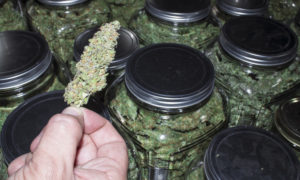Facing this all-or-nothing binary, local governments like the one in Dunedin continue to vote for an outright ban, appealing to Tallahassee politicians through groups like the Florida League of Cities.

Casey Cook, a lobbyist for the League, says that local governments want more control over the zoning rights dispensaries would have, so as to place them somewhere ideal for that city’s population. Given free-reign, these dispensaries would seek to place themselves at the centers of commerce, which many denizens of conservative municipalities would be against for many reasons.
But, when voters elected to allow Florida patients with terminal or chronic conditions to undergo voluntary medical marijuana treatment as part of their state constitution, traveling hundreds of miles to receive the treatment is not what they had in mind.
The result of an outright ban within a local city or county, like Palm Beach County, results in just that. Its citizens with chronic, debilitating diseases or chronic conditions are forced to travel more than 70 miles to the nearest dispensary in Miami. Palm Beach County has since opened a dispensary, but for patients in other cities, the ban remains and the drive is even farther.


